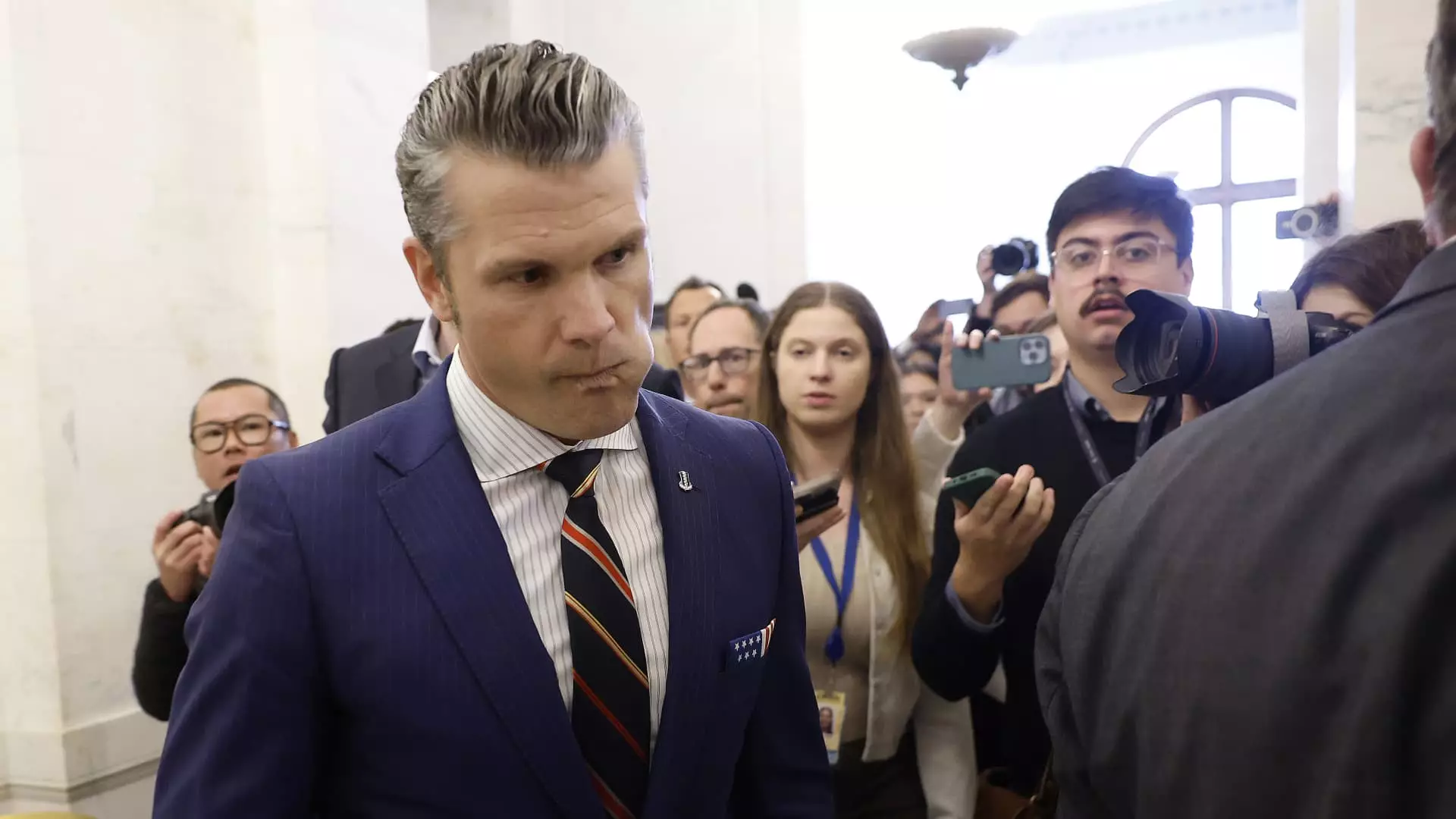The political landscape often finds itself marred by scandal, and now, shortly after the election of Donald Trump, the spotlight has turned to Pete Hegseth, the President-elect’s nominee for Secretary of Defense. A recent investigative report by The New Yorker sheds light on serious allegations against Hegseth concerning alcohol abuse, sexual misconduct, and mismanagement during his tenure at nonprofit organizations dedicated to aiding veterans. These claims pose questions not only about Hegseth’s fitness for the role but also about the broader implications of character assessment in political appointments.
According to The New Yorker, a whistleblower complaint dating back to 2015 details a troubling account of Hegseth’s behavior while presiding over Concerned Veterans for America (CVA). It is reported that he frequently appeared intoxicated at events—a stance reinforced by claims that he had to be physically carried from several occasions. Such allegations bring to the forefront serious questions regarding professionalism and accountability within organizations that advocate for veterans, which substantially lowers the credibility of their leadership.
The article elaborates on instances of alleged misconduct during Hegseth’s leadership, highlighting concerns from former employees who report that Hegseth and his team scandalously categorized female staffers into the groups of “party girls” and “not party girls,” ultimately suggesting a deeply troubling workplace culture. This environment, characterized by a lack of respect and propriety, flies in the face of the values that a nonprofit serving veterans should uphold. With Hegseth at the helm, this sort of management could have permanent repercussions on the morale and effectiveness of the organization itself.
Financial Woes and Leadership Failures
The New Yorker’s report does not only focus on Hegseth’s personal behavior but also ventures into the financial implications of his leadership at another group, Vets for Freedom (VFF). Under his guidance, the organization found itself accumulating substantial debt to a point where it could no longer meet its obligations to creditors. Here we see a troubling pattern of mismanagement that raises red flags about Hegseth’s qualifications for any high-profile leadership position, particularly one as critical as the Secretary of Defense.
When leading organizations tasked with resource allocation and advocacy on behalf of veterans, sound financial stewardship is key. The claims that donors had to intervene to regain control from Hegseth emphasize a misalignment of priorities, with leadership seemingly more focused on personal indulgences rather than the mission at hand. Such actions ultimately call into question the integrity and ethical grounding that are crucial for effective governance.
Legal Troubles and Past Allegations
As if the claims of workplace misconduct and financial mismanagement weren’t enough, Hegseth’s past encounters with the law also dim his professional image. Reports surfaced regarding an investigation into an alleged sexual assault at a hotel where a Republican convention was taking place. Although Hegseth faced no criminal charges— an outcome attributed to insufficient evidence—his admission to engaging in consensual relations amidst significant personal turmoil only adds layers to an already complex narrative.
The fallout from these allegations is compounded by the fact that Hegseth was undergoing a divorce during this period and had recently fathered a child with his current wife, heightening the stakes of his personal life. Notably, a confidential settlement paid to the accuser underscores the difficulties he faced in addressing these claims. The decision to settle, particularly in a climate where the MeToo movement elevates discussions around consent and accountability, cannot be disregarded, suggesting a desire to mitigate further damage rather than to rigorously defend his reputation.
Indeed, the growing number of allegations against Hegseth serves as an important reminder of the necessity of thorough vetting in the political appointment process. Accountability from those who occupy significant positions of power is essential, particularly in areas affecting vulnerable populations like veterans. Hegseth’s case exemplifies how leadership failures can reverberate through organizations and exacerbate existing challenges faced by the communities they serve.
As the confirmation process moves forward, the relationship between leadership integrity and effective governance needs to be scrutinized. Voters and constituents deserve leaders who exemplify the values they advocate for, free from the shadows of personal misconduct and mismanagement. As the dialogue around this subject evolves, the implications of Hegseth’s alleged behaviors will not only influence his personal trajectory but could resonate throughout the institutional fabric of the Pentagon and beyond.


Leave a Reply